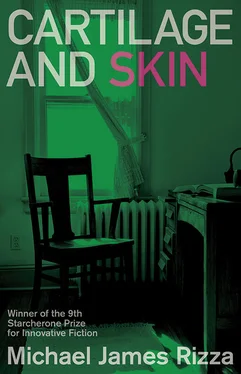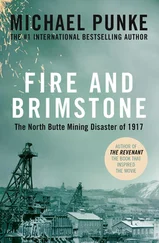Dear Dr. Parker:
My brother is a kind man, perhaps too kind. I’m aware that he went out of his way to help you, and that you have made no effort to repay him. He says that it was an investment in a brilliant mind. Knowing him, I’m sure that the sum he confesses to, is only a fraction of what you truly owe him. I appeal to your heart. Say nothing of my intervention into your affairs, and please make some kind of effort, no matter how small, to repay my brother. He has a family of his own to support .
I responded promptly, not with a check to Morris the man, but with a little note to Morris the sister. I enjoyed adopting her method of corresponding by mail because I imagined that this petite, religious woman felt it was more sly and secretive than a phone call. Perhaps she believed she was letting herself get involved in an intrigue that was unseemly but darkly pleasurable. Perhaps, between the lines, she had written, Burn this letter when you’ve finished reading it. Burn it now . Yet I wrote very formally, explaining that Morris and I were no longer on speaking terms and that he was probably too proud to accept my money. If sister would like to accept the money on his behalf, then meet me at such and such a coffee shop at a particular time and date. I look forward to meeting you, so I can finally have this matter resolved. I appreciate your tact and understanding . I set the meeting for the first Friday in October, hinting that I hoped that sister could repair the rift between Morris and myself. Your brother is a generous man .
“What are you doing?” the boy asked, standing beside my chair.
“Are you done being sick?”
“I’m okay.”
Biting his bottom lip, he leaned forward to look at the letter on the table. Then he pulled out a chair and sat at the table. I was hoping to see him look around, but he sat as if he had been used to sitting there his entire life.
“Do you want me to mail your stuff?” he asked.
“No,” I said. “I want you to go home. It’s getting late.”
He nodded at me and slipped from the chair to his feet. He stood with his hips slightly cocked and his thumbs tucked into the pockets of his cut-off shorts.
“Can I have a dollar?”
“Go home.” I turned my gaze back to the letter, as if to dismiss the boy. I sensed him lingering, but I refused to look at him. He began to shuffle away, his little body wasted down to threads. I listened for my door to open and shut, and it did. Strangely, I slightly regretted that the boy had left so easily. I got up from the table and searched my apartment, thinking that the boy might have tried to trick me and that he was now hiding somewhere. I didn’t find him.
A little while later, when I was sitting at my computer and pointing at the screen with a pen, there was a knock on my door. I buttoned up my shirt as I walked over to the door. I was about to throw it open, when I heard my landlord’s voice.
“Dr. Parker.”
“What?” I asked, with the door between us.
“I need to talk to you.”
“Talk.”
“Can you open the door?”
“What do you want?”
“I can’t allow you to bring that boy inside the building. Did you know that last week he was caught stealing a carton of cigarettes. I was talking to the clerk.”
“I don’t care.”
He knocked again.
“Dr. Parker.”
“Leave me alone,” I said and went back to my desk. I couldn’t resume my work because he continued to knock and call my name. Although he went away after a while, I was too annoyed to concentrate. I hated the thin wisps of hair on his bald head. I wanted to do something to him that for the rest of his days would grate up and down the knots of his spine whenever he remembered me. I wanted to haunt his mind with trauma and disease.
In bed, with the covers pulled over my head, I was on the edge of sleep, imagining the young woman reclining against me on my couch, her fingertips casually moving in circles on my thigh, my fingers in her hair, my lips at her ear. I heard a faint tapping and sat up in bed. I drew my robe around me, cinched it at the waist, and followed the sound of the tapping into the living room. The boy was at the window. I opened it and looked down at him shivering. Without a word, he reached up and grabbed onto the windowsill. He started to pull himself up, as if he wanted to climb through the window, but I put my hand on his forehead and pushed him down. He stepped back into the center of the alley, where he stood and quietly inspected me.
Leaning slightly out the window, I saw that he was alone. We watched each other for a moment; then the boy came forward and grabbed onto the windowsill again. I pushed his head. His feet scrambled against the wall, and a strange gurgle escaped from his throat. He dropped back into the alley. He stared at me, as if I were somehow confusing him.
“Go home,” I said.
Watching me, he stepped up to the window. This time when he started to climb in, I retreated into the room. He slipped in headfirst, his legs following in serpentine motion. He dropped fully to the floor, as if issued into my home, a thing without bones that slivered along the dimly lit floor and found its way to my couch. He scrambled up and curled himself in a tight ball.
I shut the window and locked it. For a little while, I sat on the coffee table and watched the boy sleep. When I went back to my bedroom, I shut the door and locked it. I had a difficult time trying to fall asleep. Although I had left the boy in the other room, the image of his small, motionless frame and the sound of his breathing were smeared against the back wall of my mind.
I would like to skip the details.
Let the saints and martyrs talk about the long, dark night of the soul, and how something inside of them twists around and around until they feel their bodies contorting in painful knots. Let them sweat drops of blood. Let them pray. I’m past anguish now, though there was a time in my life when my body would buckle beneath a sudden flash of guilt. Words and images swarmed my mind, each one with a little stinger, pricking me into raw pulp. Somewhere in my crippled form my heart beat like mad. Where are your accusers now? Who condemns you? I wanted to be dragged out into the street and kicked. I wanted someone to clench my neck from behind, press a gun to the back of my head, and turn my brain into a mist. But I curled up under my bed covers and searched for a place inside of myself that wasn’t touched, smudged, or soiled. Not finding that place, feeling incapable of being happy just for an instant, was another burden. It was a loss of control, a loss of agency and self. The swarm of words and images made me wonder into how many pieces my mind was fractured. Rubbing my palms against my eyes, holding my head in my hands, I was certain that I was crazy. I was also certain that I was dying. I imagined tumors and worms. Strangely, this comforted me a little as I lay in bed, wishing my organs would rot more quickly, feeling my heart slowing down at last.
The night the boy slept on my couch, with his knees drawn up to his chin and the fingertips of one hand lightly touching his lips, I was so alone in my own repugnance that it was a long time before I fell asleep. Because such nights are rare and not indicative of my character, I don’t like confessing to them. I would like to say that the boy had a peaceful night, but in the morning, after I unlocked my bedroom door and came out of my room, I learned that the boy had his own plague to deal with. I would like to say that after I discovered the couch empty — though with a dark, pungent stain on it — I also discovered my home empty, and that the boy had left sometime in the early hours before dawn. I would like to say that a warm little nook opened up somewhere in the fabric of the city, and the boy slipped himself in, as if somewhere in the total mechanism of inhumane humanity a single cog broke loose and in that flaw, that immeasurable lapse in design, the world created a warm little nook for the boy. I would like to say that all the monsters had their claws removed and that the hearth fire burned at a steady even glow all year round and the biscuits were always cooked to perfection by some maternal old aunt with a ready kiss and smile. But innocence presupposes decadence, and in all likelihood, neither one exists — just shadow and act, and the meat, sinew, and bone of neither saint nor sinner, under a firmament that is neither sacred nor profane, spinning toward an end, which is just an end. In the meantime, lions don’t lie down with lambs; they chew them up into bloody flaps of flesh. And little boys don’t escape; they curl up on bathroom floors, with their shirts splattered and their shorts soiled.
Читать дальше












